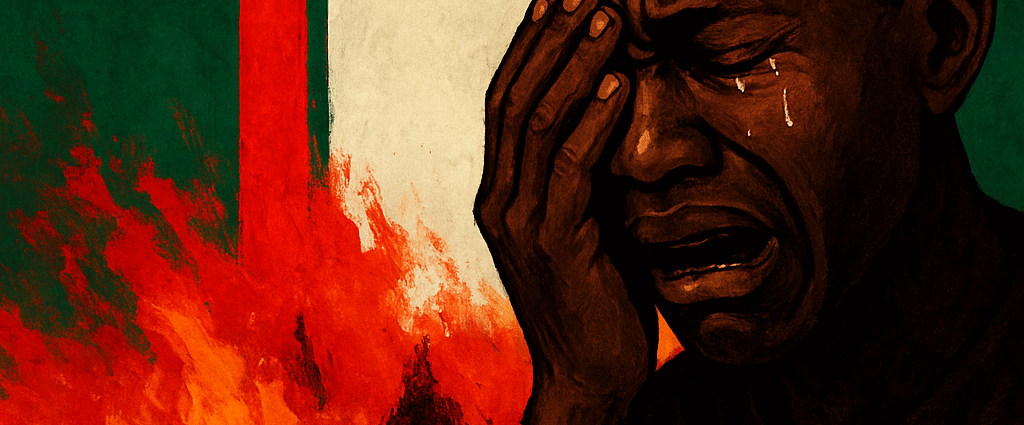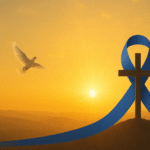Across Nigeria’s Middle Belt, Christian villages are being burned, pastors and families are being slaughtered, and entire communities are being driven from lands they have farmed for generations. This is not a “clash,” and it is not a “farmer–herder dispute.” It is a sustained, targeted campaign of terror that many on the ground now call what it is: genocide against indigenous Christian communities.
This blog post is meant to do three things: tell the truth, honor the victims, and call the church to act. For a deeper dive and a pastoral response, you can also watch our latest podcast episode, “Nightmare in Nigeria – Christians Wrongfully Persecuted” on YouTube:
Watch the episode on YouTube
1. The Scale of the Crisis
Christian advocacy groups and human-rights researchers estimate that tens of thousands of Christians have been killed in Nigeria since the early 2000s, with some analyses citing more than 50,000–62,000 believers murdered for their faith since 2000–2009. 21Wilberforce+2Truth Nigeria+2
Violence is especially concentrated in Nigeria’s Middle Belt—states like Benue, Plateau, and others—where largely Christian farming communities live along fault lines with heavily armed Islamist militants and radicalized Fulani herder militias. Open Doors
Organizations like Open Doors describe Nigeria as the epicenter of targeted violence against the church, noting repeated attacks by Boko Haram, ISWAP, and militant Fulani fighters directed at Christian villages, pastors, and churches. Open Doors+1
This isn’t random crime. It’s a pattern.
2. What TruthNigeria Is Exposing
The investigative work at TruthNigeria (truthnigeria.com) has been blunt: Nigeria’s security and humanitarian policy “rehabilitates” perpetrators while leaving victims—chiefly displaced Christians—to fend for themselves. Truth Nigeria
Their reporting documents:
- A massive imbalance in how the state treats radical aggressors versus rural Christian victims. Truth Nigeria
- Nigerian officials downplaying or denying the religious targeting, even as villages are repeatedly hit and churches destroyed. Truth Nigeria+1
- A growing chorus of Nigerian clerics and international advocates insisting that this is not generic insecurity but Christian genocide, and calling for real consequences for officials who look the other way. Truth Nigeria+1
TruthNigeria has also highlighted the “verdict of the victims”—survivors and church leaders who describe a clear pattern: predominantly Christian communities attacked, their homes seized, their churches burned, and their people scattered. Truth Nigeria+1
When people on the ground, living under fire, start using the word genocide, the rest of us do not have the luxury of shrugging and changing the channel.
3. Equipping the Persecuted: When Headlines Move On, They Show Up
While journalists and politicians argue over words, Equipping the Persecuted (equippingthepersecuted.org) is on the ground doing the slow, costly work of mercy.
According to their own reporting:
- They note that around 90% of all Christian persecution deaths worldwide in 2022–2023 occurred in Nigeria. Equipping The Persecuted
- Their field experience suggests 17 Christians are killed for their faith every day in Nigeria, with countless more displaced. Equipping The Persecuted
Equipping the Persecuted’s mission is simple and brutally practical: save lives and strengthen families after attacks. They aim to respond within 24 hours with food, medical aid, and spiritual support—showing up while the smoke is still in the air and the graves are still open. Equipping The Persecuted+1
They’ve also sounded the alarm in clear terms: this is not merely a land dispute but a “coordinated campaign by radical Islamic militias to erase Christian communities from Nigeria’s Middle Belt.” Equipping The Persecuted+1
Let’s be honest: if poor, rural Muslims were being killed in these numbers by Christians, the world would have already called it a crisis of epic proportions. Equipping the Persecuted has rightly said that the global reluctance to name what’s happening is not ignorance—it’s cowardice. Equipping The Persecuted
4. Why “Clashes” Is a Lie
Western and Nigerian media often label these atrocities as “farmer–herder clashes” or “communal violence,” as if two equal sides were fighting over resources. But reports from TruthNigeria, Equipping the Persecuted, and other advocates paint a different picture:
- Heavily armed militias launching surprise night raids on unarmed Christian villages. Equipping The Persecuted+1
- Systematic burning of homes, churches, crops, and entire communities. Open Doors US
- Survivors describing military-style operations aimed at clearing Christians from specific regions. genocidewatch+1
Yes, there are ethnic and economic factors. But when the victims are overwhelmingly Christian farming communities, and attackers openly fly jihadist flags or shout Islamist slogans, we cannot pretend this is religiously neutral. Open Doors+1
Words matter. If we keep calling genocide “clashes,” we help bury the truth alongside the dead.
5. The Church’s Call: Pray, Give, Speak, Go
This is where we, as followers of Christ, must refuse to be passive spectators.
Pray with clarity, not vagueness. Pray specifically for Christian communities in Benue, Plateau, and other Middle Belt states; for pastors and families living under constant threat; for children growing up in IDP camps instead of their home villages.
Give with strategy, not guilt.
Support organizations that are:
- Embedded on the ground, like Equipping the Persecuted, providing rapid response, trauma care, and rebuilding support. Equipping The Persecuted+1
- Telling the truth and documenting the facts, like TruthNigeria, which is pushing back against official denial and media spin. Truth Nigeria+2Truth Nigeria+2
Speak with courage, not confusion.
Use your voice:
- Share verified reports from truthnigeria.com and equippingthepersecuted.org.
- Challenge the lazy language of “clashes” when the evidence shows targeted, one-sided massacres. Equipping The Persecuted+1
- Ask your church leaders, representatives, and mission boards what they are doing about Nigeria.
Go where God sends you.
For some, that may mean short-term work in trauma counseling, medical missions, or advocacy. For others, it may mean standing in the gap financially so those who are called to go can stay on the field.
6. Why We Recorded “Nightmare in Nigeria – Christians Wrongfully Persecuted”
Our latest podcast episode, “Nightmare in Nigeria – Christians Wrongfully Persecuted,” exists because silence is not an option.
In that conversation, we:
- Walk through the reality on the ground for persecuted Christians.
- Highlight the work of partners like Equipping the Persecuted and the frontline reporting of TruthNigeria.
- Call men and women of faith to respond with prayer, sacrificial giving, and bold advocacy.
Again, you can watch it here:
Watch “Nightmare in Nigeria – Christians Wrongfully Persecuted” on YouTube
Share it with your church, your small group, and your friends who still don’t know what is happening.
7. A Final Word of Resolve and Hope
We cannot change the past massacres. We cannot resurrect those who have already fallen. But we can decide that their blood will not be ignored.
The Nigerian believers who bury their loved ones today are our brothers and sisters. Their children are part of the same body of Christ as ours. When one part suffers, the whole body is supposed to feel it.
So let’s refuse numbness. Let’s reject sanitized language. Let’s stand with TruthNigeria as they expose the facts, and with Equipping the Persecuted as they bind up wounds and rebuild lives. And let’s live as if the persecuted church in Nigeria actually matters to us—because it does.
Lord, give us ears to hear, hearts to care, and the courage to act.



